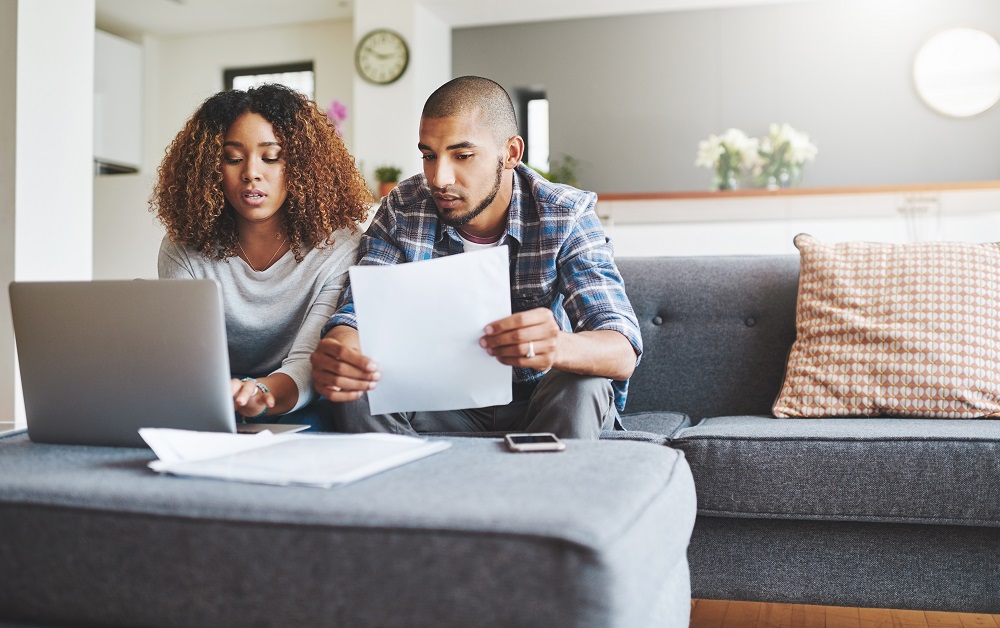First Time Buyers Guide
Understand your finances
Before you begin your house search, you’ll need to prepare your finances. Here are some of the key financial aspects you’ll need to consider as a first time buyer.
Set yourself a realistic budget
Start saving
Consider setting up a Lifetime ISA
Check your credit report
Plan for ongoing costs
- Monthly mortgage payments.
- Insurance.
- Council tax.
- Utilities.
Prepare for the homebuying journey
From gathering essential documents to understanding the government schemes available to you as a first time buyer, here’s everything you can do to prepare for your homebuying journey.
Register to vote
Get your documents ready
Explore government schemes
- First Homes Scheme – A government scheme that offers first time buyers the opportunity to purchase a new build property for 30% to 50% less than the market value.
- Lifetime ISA (LISA) – The Government will give you a 25% bonus on top of the money you put in your LISA to put towards a property valued at £450,000 or less.
- Shared Ownership Scheme – If you can’t afford the full deposit and mortgage payments, this scheme allows you to buy a share of the property’s full market value.
- Help to Buy ISA – You can no longer open a Help to Buy ISA, but for those who already have one, you can claim a 25% bonus on your savings (up to £3,000) until November 2030.
Consider our other schemes
- Deposit Boost – If you have a 10% deposit, we could boost it by funding up to an additional 5% of the sale price, giving you a total deposit of 15%.
- Deposit Unlock – This scheme enables first time buyers to purchase a new build home with a 5% deposit.
- Kickstart – A shared ownership scheme, in association with Legal & General Affordable Homes, where eligible buyers can purchase up to 75% of a new build home, and pay a subsidised rent on the remaining share.
- Parent Power – If you’re receiving financial support from your family, we could pay you 5% of your property’s purchase price up to £15,000 on the date of legal completion.
Consider your property options
Navigate property listings
Book house viewings
- Ask lots of questions.
- Schedule viewings at various times of the day to get a feel for the property.
- Check for structural issues and damp.
- Enquire about any energy-saving features the property may have, like insulation, heat pumps and solar panels.
- Take notes and pictures to remind you how the property looks, including how much natural light each room gets, and whether it’s north or south-facing.
- Create a checklist of the features you’re after and tick them off as you go.
- Allow extra time to explore the local area.
The mortgage process
Most people need a mortgage to purchase a property. As a first time buyer, here’s everything you need to know about the mortgage process.
Choose your mortgage type
Assess your Loan to Value
Prepare for additional costs
Valuation fees
Arrangement fees
Buildings insurance
Reservation fees
Stamp Duty Land Tax
Conveyancing fees
- The complexity of your house purchase.
- The price of your property.
- Where your conveyancing solicitor is based.
- Whether your property is leasehold or freehold.
Finalising the purchase
Moving in
After making it to completion day, it’s time to organise your move and start making your house feel like a home.
Consider moving costs
- Removal company fees.
- Packing materials like boxes or bubble wrap.
- Storage costs, if needed.
- Utility setup fees for services like internet, electricity and water.
- A takeaway on moving day, so you don’t have to cook.
Top tips for settling into your new home
- Create a checklist of essential admin tasks you need to do before moving day, including setting up your utilities and organising mail redirection from your old address.
- Meet your neighbours and introduce yourself.
- Locate important places like your nearest GP, pharmacy and hospital.
First Time Buyer FAQs
-
A first time buyer is someone who has never owned a residential property before, including those inherited or gifted.
-
There is no exact timeframe for how long the mortgage process takes, but it’s typically between 4 and 6 weeks. This will depend on the following:
- Your lender.
- If there are delays due to legal checks or missing documents.
- The complexity of your mortgage offer.
-
Your deposit should be between 5% and 20% of the price of the property you’d like to buy. Higher deposits often lead to better mortgage rates, so the bigger your deposit, the better. As a first time buyer, you also have access to a range of government schemes that may help boost your deposit.
-
In the UK, first time buyers may be eligible to buy a new build home for 30% to 50% less than its market value with the Government’s First Home Scheme. You must meet the following criteria:
- Be 18 or older.
- Be a first time buyer.
- Be able to get a mortgage for at least half of the price of the home.
- Not earning more than £80,000 a year before tax.
-
As a first time buyer, the best scheme for you will depend on your circumstances. For example, if you’re being gifted a deposit from your parents, Parent Power could be an ideal option. Research thoroughly and consider your circumstances carefully before making a decision.
-
It depends on the price of the property you wish to buy and your mortgage lender, but your £15,000 deposit could be a 5% deposit for a home worth £300,000. As this is a smaller deposit payment, be aware that interest rates may be higher.
-
The minimum salary you need to buy a house in the UK varies based on location and mortgage terms. Lenders typically require income 3 to 4.5 times the mortgage amount. In London, a salary of £50,000 plus may be needed for a modest home. However, there are government schemes that may help lower your income requirements.Ready to become a homeowner? Explore our range of brand-new homes across the UK, with fantastic offers to help you move.
Our Offers to Help Get You Moving
Help to Sell
If you’re looking to start your next adventure, but are worried about the hassle of moving, we have a range of schemes available to help you sell your existing home.
Part Exchange
We could be your guaranteed buyer, so no stress or fuss, just an easy move for you and your family.
Armed Forces Deposit Contribution
We're offering Britain's military servicemen and women a 5% deposit contribution to help them buy a brand-new home.
Own New - Rate Reducer
Own New - Rate Reducer is a brand-new scheme available on new build homes that could mean lower mortgage rates and reduced monthly payments.
Key Worker Deposit Contribution
As a thank you for the support provided to our communities, we are offering key workers a contribution of £1,000 for every £20,000 up to £15,000.
Help to Buy Wales
Whether you're a first time buyer or existing homeowner, you could buy a brand-new home in Wales with just a 5% deposit.
Low Deposit Offers
If you have a low deposit, we have a variety of schemes available to help make moving more affordable.
Parent Power
If you’re getting financial support from your family or friends to help you get on the property ladder, we could match it, up to a maximum of 5% of the purchase price.






